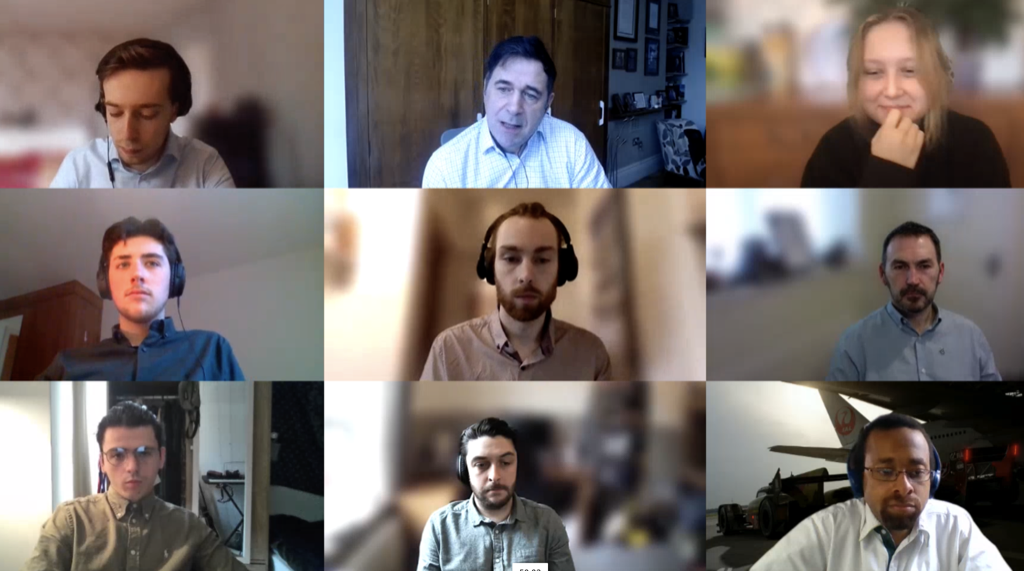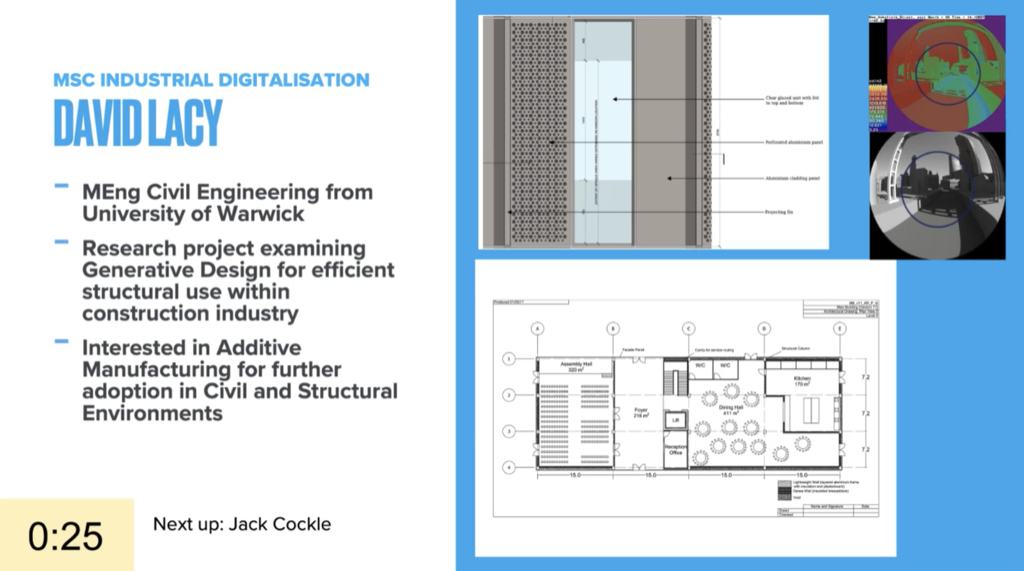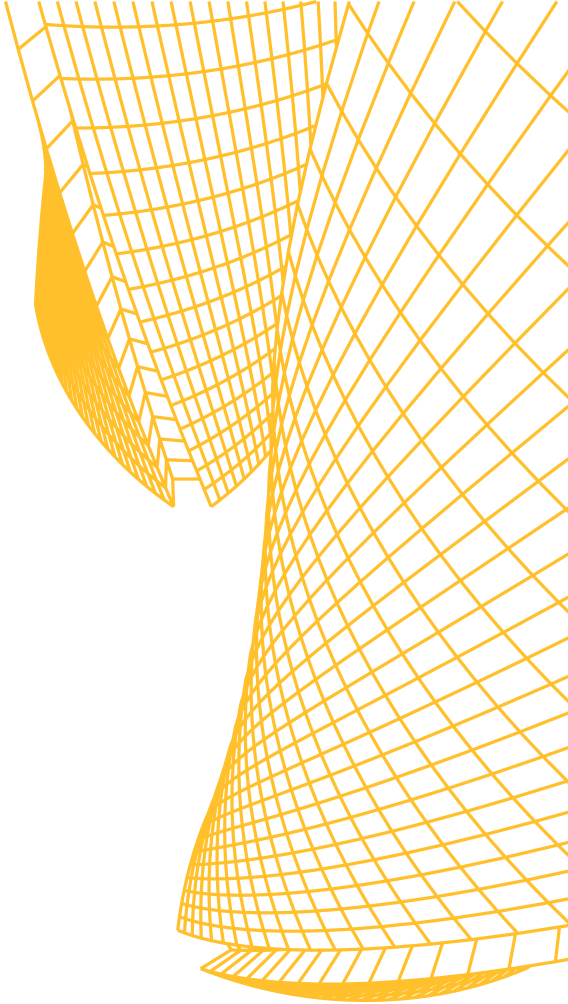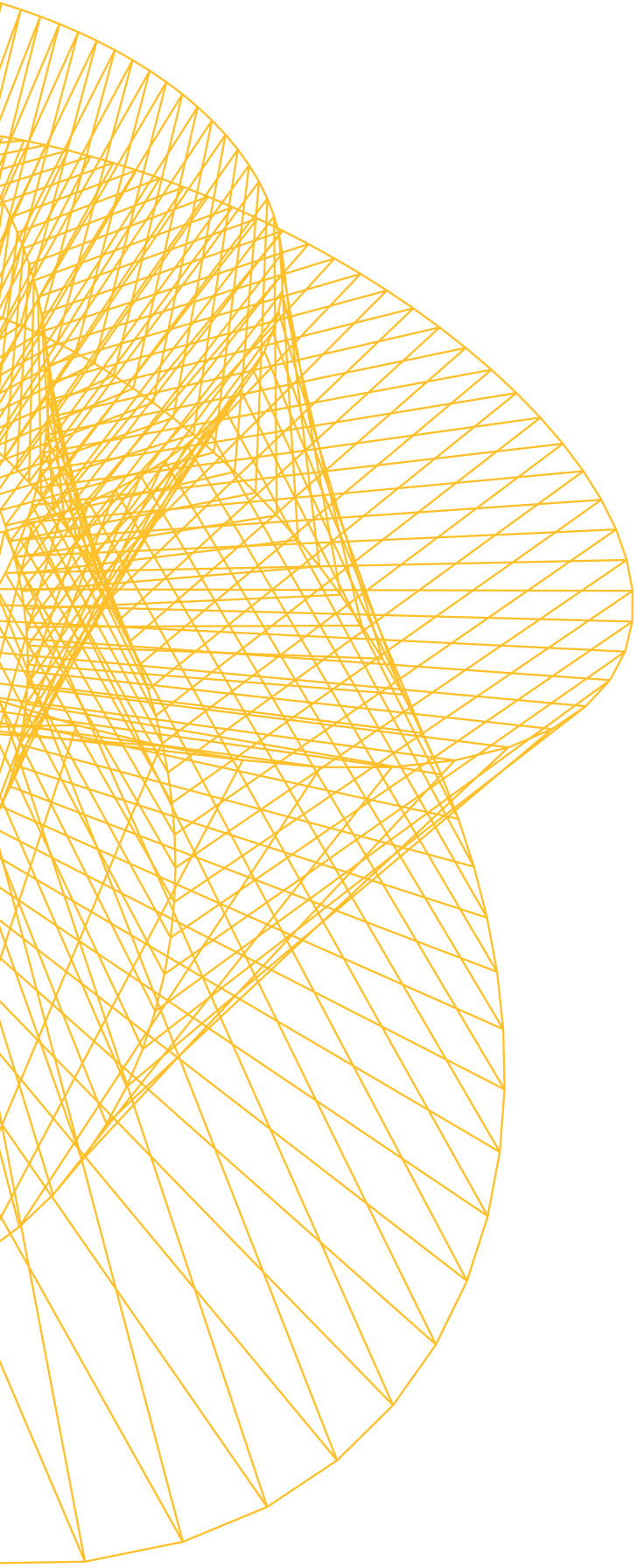MSc Guest Lecture: Prof Jürgen Maier
On 28th January, PrintCity and the Department of Engineering welcomed the former CEO of Siemens UK, Jürgen Maier to share an afternoon of discussion and conversation around Industry 4.0; the challenges that we have already overcome, and those that still lie ahead.
On 31st October 2017, the UK Government published the Made Smarter Review which was a landmark document that woke the nation to the realities of digital manufacturing in the UK. It revealed the opportunities that could be had with better adoption, innovation, and leadership: the three pillars of the review document. Who better then to provide essential insight into these strategic themes with our MSc Industrial Digitalisation students than the person who led the review?

Teams meeting 
Student intro slide
The afternoon was set-up to allow plenty of two-way conversation and was delivered using Microsoft Teams; the application that quickly found millions of new users during the COVID-19 pandemic.
The afternoon was introduced by the Head of Department of Engineering, Prof. Tomasz Liskiewicz who thanked Jürgen for his continued support of the programme, the department and the University. The MSc Industrial Digitalisation leader Peter Gough then gave some background on the ethos and aims of the programme and how it had been built from an idea by Prof. Craig Banks to produce capable and confident graduates. The mantra of the programme is ‘Get comfortable being uncomfortable’ and is something that Jürgen would later pick up on.
Each of the 12 students from the 2020-21 cohort then introduced themselves, their backgrounds, and their research interests. This served to inform Jürgen of his audience for the afternoon and provide platforms from where he would focus particular aspects of his talk. He noticed that the majority of the group had design backgrounds over manufacturing but that design and manufacturing went hand-in-hand.
“It’s really fascinating to see what you are all doing at PrintCity. I think the MSc is positioned brilliantly in this space” – Jürgen Maier
At the opening of his talk, Jürgen noted that the pandemic was of course a major reason and a key catalyst for accelerating digital disruption and that this could be seen as one positive to come from it. The COVID situation echoed the effects on industry that Jürgen had encountered as a new graduate in the mid-1980’s in the wake of the miner’s strike and other national strikes in shipyards, textile mills, and engineering plants. Ironically, on the site of the famous clashes between police and miners at the Orgreave coking plant now stands the Advanced Manufacturing Centre at Sheffield University.
Around this national crisis, we saw the arrival of the first PC based automation systems and Programmable Logic Controllers (PLC’s) to our shores. This was the beginning of the third industrial revolution and for anyone in their 50’s was the first of two industrial revolutions they would witness in their lifetimes. However, the journey that would lead us forward forgot to take with it one critical component; the people.
“With any disruptive time, huge opportunities come with it. The more comfortable you can get with disruption, the more successful you will be” – Jürgen Maier
Jürgen recalled how being disruptive was once seen as a really negative thing to be and a mindset of ‘Don’t upset the apple cart’ prevailed; hinting that this could be one of the reasons why British Industry had found it difficult to engage the gears of change. Despite this, he told the students how he sought out companies that were embracing emerging technologies.
The son of parents who both worked at Siemens, he studied at a Siemens school and inevitably, found his way into the company as they ticked every box that interested him. They were amongst the first to use PLC’s, CNC machining, robotics and making use of the first really capable microprocessors and making the transition from Industry 2 to Industry 3.
He saw a real opportunity to stand out and became involved in all aspects of this transition, from design through to manufacturing. Remember this is when PCB surface mounting of components was not automated and all had to be carried out by hand. Not satisfied with a local operation, Jürgen joined up with others internationally to develop these technologies more widely.
This transition did not gather the pace that Jürgen thought was necessary, citing some resistance from Senior Managers and from the workforce. It’s here that his people skills were developed and honed. He was able to see how this change looked from those who would need to do it, “worried about all the machines that had come to take their jobs”.
As Jürgen saw it, the 1980’s and 2010’s had further similarities, albeit those concerning politics. Then, the agenda for change to drive out the old ways and now to repeat this with digital ways, all in the shadow of Brexit. Thankfully, the new changes are not seeing the opposition we saw in the 80’s. The internet is all you need to see how your competitors are progressing and what you need to do to avoid missing the boat. Alongside this is a more social purpose to do this with consideration for sustainability and environmental awareness.
“The level of disruption now is just unprecedented” – Jürgen Maier
Jurgen cited PrintCity as a great example of a modern digital laboratory and something that is absolutely necessary to educate and train the current generation of disruptors. Many such places will advertise using a phrase like ‘training the next generation of disruptors’ but why wait for the next generation when we have a prime opportunity to train the current?
With ‘Made Smarter’, Jurgen wanted to make sure that companies had the guidance and support to step onto Industry 4. He reminded the MSc students that even though they were themselves heavily committed to these technologies, they would find resistance in many of the 6 million SME’s across the UK who had yet to take any steps into a digital future. Of the three strategic themes of Made Smarter, adoption was a challenge for many of these companies for a whole range of reasons but that the other two of leadership and innovation had an equal measure of importance.
Jurgen saw plenty of opportunities for the MSc students to play their part in this change process, referencing the work that Made Smarter is making to support a number of digital innovation hubs across the country, for which MMU has bid to become one. In these hubs, working with facilities like PrintCity, our students with their skills can help to up-skill the companies and their people who are looking to embrace digital manufacturing and bring these under the umbrella of an ecosystem that will snowball across the land.
Rather than concentrate only on existing companies adopting change, Made Smarter is also there for tech start-ups who can jump straight in with the latest technology without needing to first oust legacy operations and techniques. Here too, it’s not only about the technology itself but how this is integrated within the architecture of a company, its ways of working and aims.
“You MSc students have a huge amount of value to bring when you join these companies but learning is a lifelong process” – Jürgen Maier
Along with technological change must come inclusive change. Jurgen pointed out that the Master’s students had a good range of ethnic backgrounds but females were ‘shockingly low’ in number. At PrintCity, we could not agree more and we sincerely hope we receive many more applications from women for the 2021-22 academic session.
“The more people you have from different backgrounds is where you will get the most innovation and the best ideas. Disagreement is healthy if it is constructive” – Jürgen Maier
Following his talk, students enjoyed half an hour of open debate with Jürgen on all subjects from industrialism to Formula 1 and electric cars. He sees opportunities in niche technologies such as software systems for autonomous driving vehicles.
At the end of the afternoon, Prof.Andy Gibson, Pro Vice Chancellor of Science and Engineering thanked Jürgen and invited him back to cut the ribbons on the new PrintCity when it moves to its new premises in July.
Get in touch
If you're interested in working with us, or have questions about studying with us please get in contact.

Related Blog Articles

